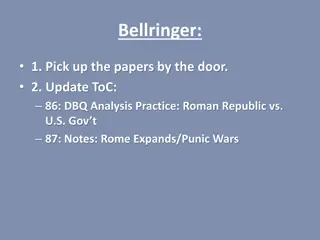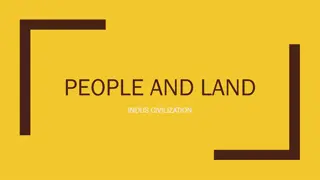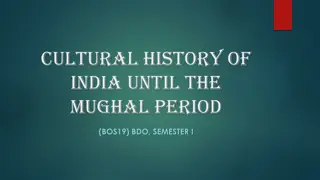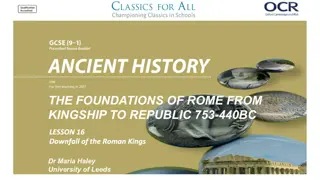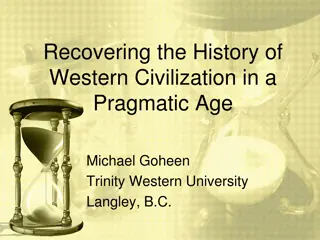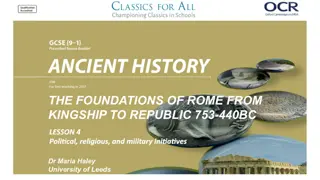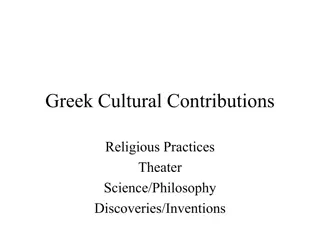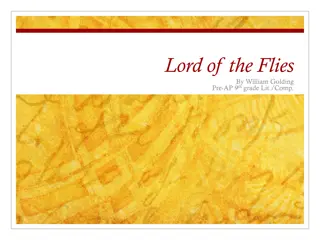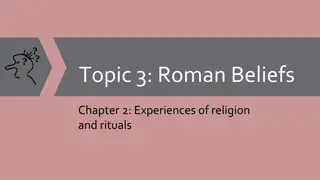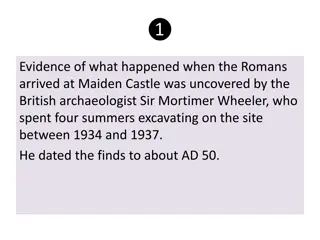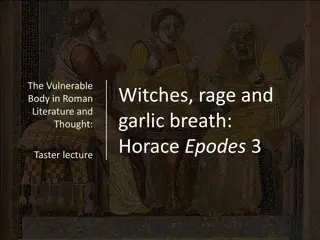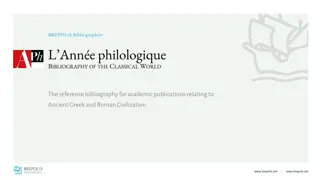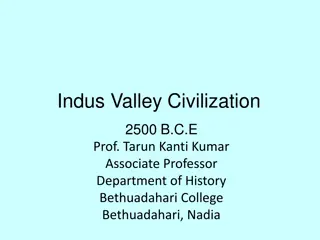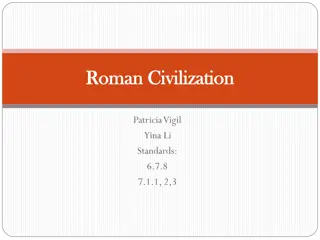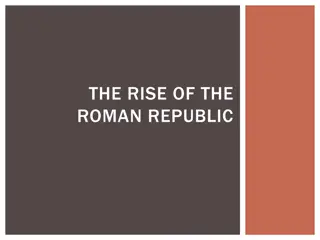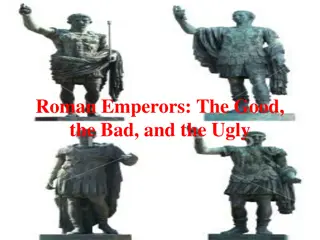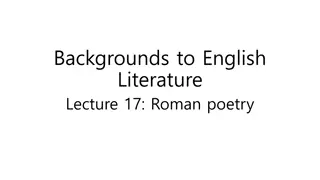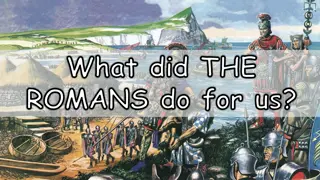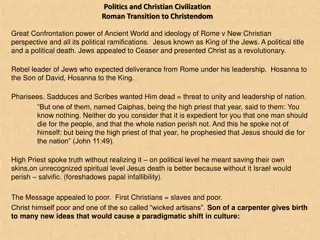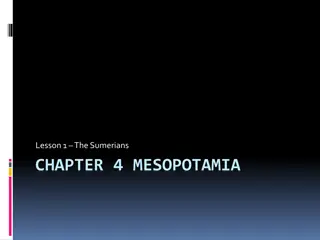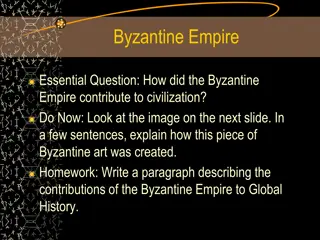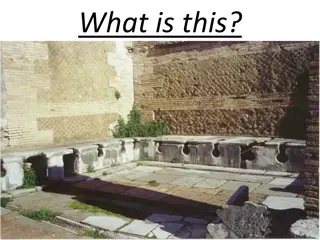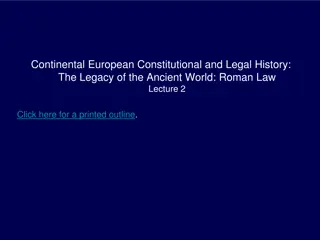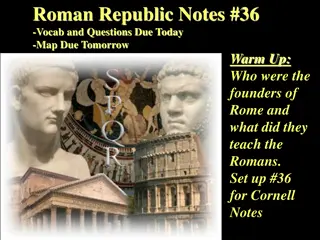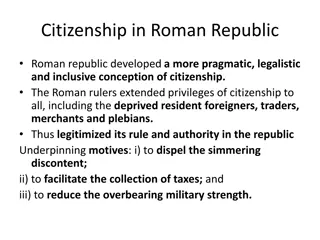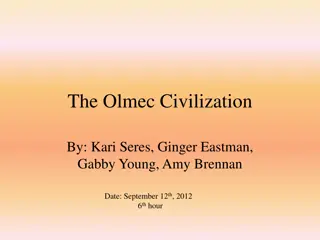Read⚡ebook✔[PDF] Blood of the Provinces: The Roman Auxila and the Making of Pro
\"COPY LINK HERE ; https:\/\/getpdf.readbooks.link\/0198795440\n\n[PDF READ ONLINE] Blood of the Provinces: The Roman Auxila and the Making of Provincial Society from Augustus to the Severans | Blood of the Provinces: The Roman Auxila and the Making of Provincial Society from Augustus to the Severan
2 views • 6 slides
READ⚡[PDF]✔ European Mail Armour: Ringed Battle Shirts from the Iron Age, Roman
\"COPY LINK HERE ; https:\/\/getpdf.readbooks.link\/9463721266\n\nDOWNLOAD\/PDF European Mail Armour: Ringed Battle Shirts from the Iron Age, Roman Period and Early Middle Ages (Amsterdam Archaeological Studies) | European Mail Armour: Ringed Battle Shirts from the Iron Age, Roman Period and Early
11 views • 6 slides
Evolution of Property Transfer in Roman Law
Comparative Property Law explores the evolution of property transfer in Roman law. In classical Roman law, property transfer required an external act of delivery. Over time, formal acts like mancipatio and traditio became common for property transfer. During the Justinian period, traditio became the
3 views • 24 slides
Roman Republic Expansion and Punic Wars Overview
Learn about the Roman Republic's expansion from 350 B.C.E. to 150 B.C.E., including their policies towards conquered territories, trade networks, and conflicts with Carthage in the Punic Wars. Explore key aspects of Roman society, politics, economics, and culture during this period through bellringe
1 views • 32 slides
Insights into Roman Medicine and Writers of Antiquity
Explore the rich history of Roman medicine and literature through the writings of influential figures like Pliny the Elder. Discover how Roman cures for ailments were associated with treatments such as baths and exercises. Uncover fascinating details about medical practices, including the first phys
0 views • 15 slides
Ancient Civilization of the Indus Valley: People, Land, and Culture
The ancient Indus Valley Civilization, one of the oldest in the world, flourished in the region irrigated by the River Indus and its tributaries. Discoveries in places like Mohenjo-Daro and Harappa reveal a sophisticated urban society with advancements in crafts, trade relations with contemporary ci
1 views • 15 slides
Cultural History of India: Early Vedic Period and Aryans
The period of the Aryans in ancient India marked a transition from the Indus Valley Civilization to the Vedic Civilization. The Aryans, possibly migrants from various regions, integrated with the indigenous Dravidians to form the Vedic society. Their culture, as depicted in the Vedas and epics like
0 views • 10 slides
The Downfall of the Roman Kings: Lucretia's Role in Establishing the Republic
The Rape of Lucretia by Sextus Tarquinius was a key event leading to the downfall of the Roman kings and the establishment of the Republic. Lucretia's character, representing chastity and virtue, inspired Brutus to take a stand against the tyrannical rulers. Brutus's impassioned speech and vow marke
2 views • 6 slides
Uncovering the Significance of Western Civilization in a Pragmatic Era
Unveil the importance of history in Western civilization amidst a pragmatic age, exploring the impact of cultural formation, religious beliefs, and the mission to modernity. Delve into how studying history provides intellectual growth and understanding of our societal roots and beliefs.
4 views • 34 slides
Comparative Analysis of Roman Foundational Myths
The task involves analyzing the foundation myths of Rome, focusing on the development, religious, and military initiatives. By comparing Livy and Dionysius' interpretations of Romulus's contributions, considering issues of trustworthiness, and creating infographics on Roman hierarchy and omens, stud
0 views • 6 slides
Historical Origins and Formation of German Law: Influence of Roman Law
The historical origins and formation of German law were shaped significantly by the late contact with Roman law during the Medieval and Renaissance period. The weak central imperial power, rising influence of territorial rulers, and the lack of a common legal system in Germany prompted the appeal fo
0 views • 23 slides
Explore the Fascinating Wonders of Egypt's Ancient Civilization
Egypt, with Cairo as its capital, is a captivating destination in Africa with a population of 100 million. Arabic is the official language, and the currency is the Egyptian pound. Its hot, dry summers and mild winters attract millions of tourists yearly who come to experience its rich culture and hi
5 views • 16 slides
Greek Cultural Contributions: From Olympics to Theater
Ancient Greek civilization made significant cultural contributions in various aspects such as religious practices, theater, and scientific discoveries. The Greeks had a rich tradition of honoring their gods through events like the Olympics and theatrical performances that continue to fascinate audie
4 views • 26 slides
Unveiling Roman Britain: Lessons on Inscriptions and Everyday Life
Delve into the world of Roman Britain through inscriptions, exploring the lives of its inhabitants. Lesson 2 focuses on deciphering inscriptions to unveil historical insights. Learn to craft historically-valid questions using key words and understand how these artifacts reveal details about everyday
0 views • 13 slides
Exploring the Depths of "Lord of the Flies" by William Golding
William Golding’s "Lord of the Flies" is a powerful allegorical novel that delves into human nature, society, and the struggle between civilization and savagery. Set in the aftermath of WWII, the story follows a group of boys stranded on an uninhabited island, each representing different facets of
0 views • 12 slides
Roman Beliefs and Religious Practices in Pompeii
Explore the diverse experiences of Roman religion in Pompeii, where worship of multiple gods was common and individuals had the flexibility to honor both official and personal deities. Learn about the tolerant attitude towards religious differences in the Roman Empire and how beliefs evolved over ti
1 views • 6 slides
Overview of Early Christian Martyrs in the Roman Empire
Explore the historical context of early Christian martyrs in the Roman Empire, starting from the first century with the reign of Augustus to the turmoil and persecutions in the third century under emperors like Diocletian. Learn about the Roman religion, the Five Good Emperors, and the social dynami
0 views • 24 slides
Exploring Roman Civilization: Contributions and Daily Life
Delve into the intriguing world of ancient Rome through a visual journey showcasing the impact of Roman civilization. Discover the architecture, art, infrastructure like roads and drains, calendar systems, coins, and the luxurious baths they enjoyed. Uncover the influence of the Roman Empire on vari
0 views • 20 slides
Uncovering Evidence of Roman Arrival at Maiden Castle by Sir Mortimer Wheeler
British archaeologist Sir Mortimer Wheeler excavated Maiden Castle between 1934 and 1937, uncovering evidence of the Roman arrival around AD 50. The site revealed insights into the Roman invasion in AD 43, showcasing advanced Roman equipment like the ballista. The discovery included carefully buried
0 views • 6 slides
Understanding the Roman Missal - Celebrating the Eucharist
Explore the significance of the Roman Missal in understanding and navigating the celebration of the Eucharist within the Catholic Church. Delve into the theological premises, participation of the faithful, and Christ's transformative presence in the liturgy. Discover the core themes and roles outlin
0 views • 33 slides
Exploring Vulnerability and Power in Roman Literature: Horace's Epodes and More
Delve into the themes of vulnerability, power, and fragility in Roman literature through the works of Quintus Horatius Flaccus, known as Horace. Explore the use of witches, garlic breath, and rage in his Epodes, while also examining the broader concepts of aging, modern parallels, and societal chall
0 views • 9 slides
Roman Political History: From Rise of Pompey to Reign of Augustus
In the tumultuous period of Roman history from the rise of Pompey to the reign of Augustus, we witness pivotal events such as the Alliance of the First Triumvirate, the civil war between Pompey and Julius Caesar, Caesar's assassination, the rise of Octavian, and the establishment of the Second Trium
0 views • 20 slides
Comprehensive Bibliography on Ancient Greek and Roman Civilization
Explore L'Année Philologique, an international bibliography covering a wide range of subjects related to Ancient Greek and Roman civilizations. With over 900,000 bibliographic records and 575,000 book review references, it serves as a valuable resource for academic research. The database includes p
0 views • 8 slides
Exploring the Indus Valley Civilization: Artifacts, Cities, and Origins
Delve into the ancient Indus Valley Civilization, dating back to 2500 B.C.E. Uncover the roots of this civilization, its carefully planned cities such as Harappa and Mohenjo-Daro, and the exquisite artifacts including pottery, metalwork, and small sculptures. Discover the intriguing early trade rout
1 views • 15 slides
Exploring Greek and Roman Historians and Early Historic India
Delve into the world of Greek and Roman historians such as Herodotus, Thucydides, Livy, and Tacitus, analyzing their methods of historical inquiry and writing. Discover the vibrant past of early historic India up to the 6th century B.C., exploring diverse cultural traditions and archaeological sourc
0 views • 14 slides
Roman Civilization Overview
Roman civilization was influenced by Greek culture, as seen in their art, literature, and architecture. Roman artists and writers borrowed ideas from the Greeks but adapted them to suit their needs. They created realistic statues, innovative buildings with features like arches and domes, and iconic
0 views • 36 slides
The Rise of the Roman Republic and Political Evolution in Ancient Rome
The Roman Republic emerged in 509 B.C.E. as a form of government with elected leaders, initially only accessible to Patricians. This led to a division between Patricians and Plebeians, the latter being the majority of the population. The Senate, Consuls, and Tribunes played key roles in shaping Roma
0 views • 17 slides
Roman Emperors Through History: The Good, the Bad, and the Ugly
Explore the fascinating history of Roman emperors, from the wise and just rulers like Augustus and Marcus Aurelius to the tyrannical and infamous ones such as Caligula and Nero. Learn about their achievements, controversies, and ultimate fates, shaping the course of the ancient Roman Empire.
0 views • 10 slides
Understanding Natural Numbers, Whole Numbers, and Roman Numerals
This chapter delves into the concepts of natural numbers, whole numbers, and Roman numerals. It covers the basics of numeral systems, properties of whole numbers, and rules for Roman numerals. Learn about counting numbers, place value, successors, predecessors, and more to build a strong mathematica
0 views • 11 slides
Overview of Roman Poetry and The Eclogues: A Study in Roman Literature
Roman poetry encompassed various genres such as epic, drama, lyric, satire, and pastoral, with poets like Virgil and Catullus making significant contributions. The neoteric poets, inspired by Hellenistic traditions, added a new dimension to Roman poetry. The Eclogues by Virgil, drawing from Theocrit
0 views • 17 slides
Exploring Roman Baths: History and Architecture
Delve into the fascinating world of Roman baths, where cleanliness and socializing intertwined. Discover the construction of Roman Bath Houses in Britain, exemplified by the Roman Baths in Bath, Somerset. Uncover the purpose of rooms like the Tepidarium and Caldarium, designed for relaxation and mus
0 views • 20 slides
Transition from Roman Politics to Christian Civilization: A Paradigmatic Shift
The transition from Roman politics to Christian civilization marked a significant confrontation between the powers of the ancient world and the ideology of Rome versus the new Christian perspective. This shift had profound political ramifications, with Jesus being known as the King of the Jews, spar
0 views • 7 slides
Civilization of Sumer: Mesopotamia's First Urban Society
Mesopotamia, the cradle of civilization, saw the rise of the Sumerians in 3000 BC. Situated between the Tigris and Euphrates rivers, the Sumerians developed advanced city-states, introducing writing, agriculture, and social classes. Their legacy includes innovations in irrigation, city planning, and
0 views • 10 slides
The Contributions of the Byzantine Empire to Civilization
The Byzantine Empire made significant contributions to civilization through art, law, religion, and centralization of government. The empire's legacy includes the preservation of Roman laws, promotion of Christianity, accumulation of church wealth, and establishment of Constantinople as a key center
0 views • 22 slides
Exploring Ancient Roman Civilization Through Images and Text
Delve into the intriguing world of ancient Roman civilization through a collection of images and text snippets. Discover the transition from the Roman Republic to the rule of Emperors, examine the behavior of Roman figures, and ponder societal norms and practices of that era.
1 views • 17 slides
Overview of Legal Systems and Roman Law Development
Legal systems play a crucial role in governing societies, with Roman Law, Common Law, Civil Law, and Religious Law being some of the major types worldwide. Roman Law, focusing on private law, has influenced legal traditions in various regions, especially in Europe. Contrasting Common Law and Civil L
0 views • 26 slides
Evolution of Roman Legal System and Justinian's Codification
Roman legal history is divided into several periods, from the Archaic City-State to the Classical Principate and the Post-Classical Dominate. The codification of Roman law culminated in Justinian's Corpus Iuris Civilis, which included the Digest, Institutes, Code, and Novels. Justinian's reforms est
0 views • 35 slides
Overview of Roman Republic: Government, Society, and Power Dynamics
Explore the foundation of the Roman Republic, its growth, societal structure with Patricians and Plebeians, and power dynamics shaping its governance. Discover the roles of different social classes, voting rights, and the struggle between the nobles and regular citizens within the Roman Republic.
0 views • 15 slides
Evolution of Citizenship: Roman Republic to Middle Ages
The concept of citizenship evolved from the Roman Republic's inclusive approach to a more legalistic framework detached from political agency. Post-Roman Empire, citizenship diminished, shifting focus to personal salvation in the Middle Ages. However, Italian city republics like Florence and Venice
0 views • 8 slides
Exploring the Olmec Civilization: Origins, Culture, and Legacy
The Olmec Civilization, considered the mother civilization of Mesoamerica, emerged from competing chiefdoms where rulers served as religious leaders. They thrived in agriculture, building mounds, pyramids, and temples. Their religious practices included mound building, bloodletting, and ritual sacri
0 views • 20 slides
![Read⚡ebook✔[PDF] Blood of the Provinces: The Roman Auxila and the Making of Pro](/thumb/20539/read-ebook-pdf-blood-of-the-provinces-the-roman-auxila-and-the-making-of-pro.jpg)
![READ⚡[PDF]✔ European Mail Armour: Ringed Battle Shirts from the Iron Age, Roman](/thumb/20552/read-pdf-european-mail-armour-ringed-battle-shirts-from-the-iron-age-roman.jpg)

